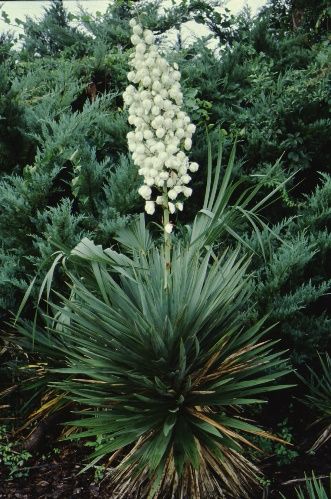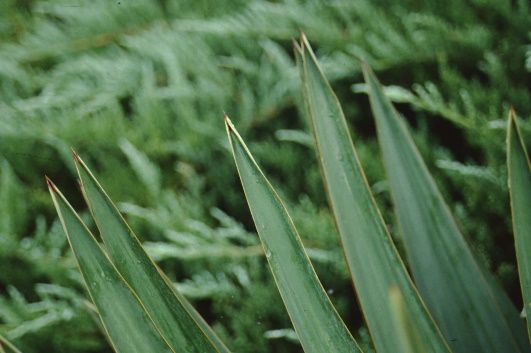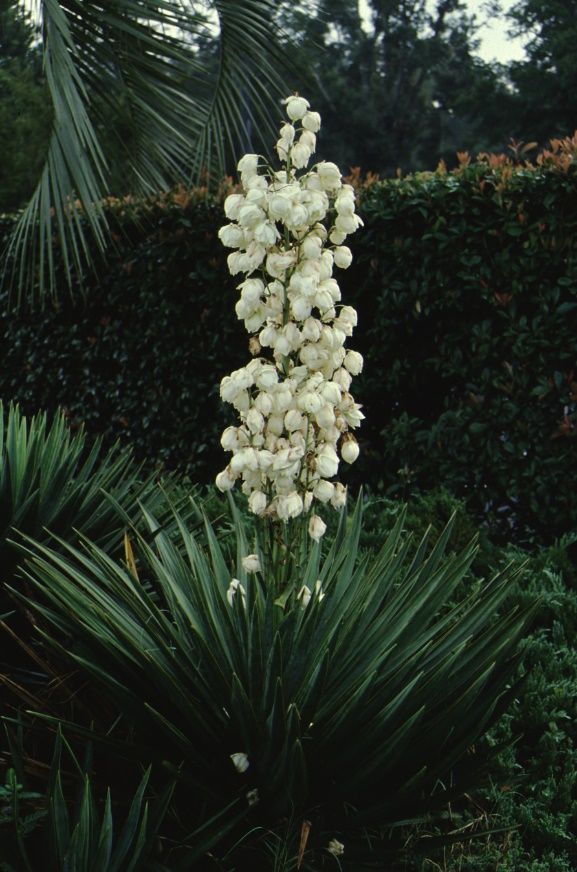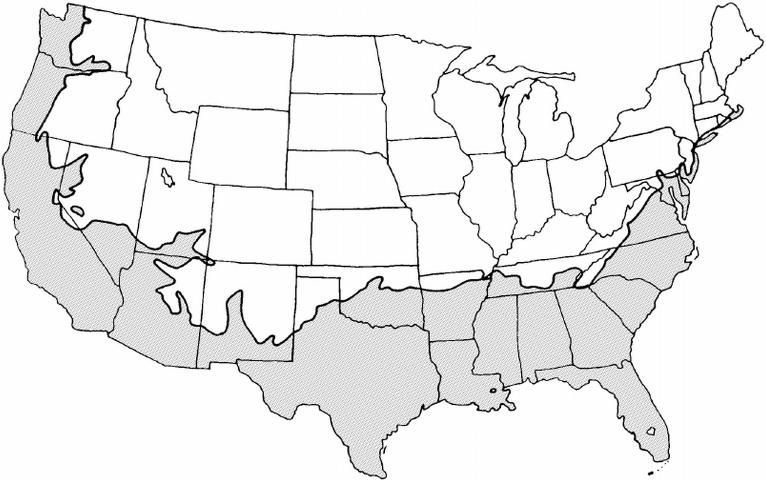Introduction
Spanish bayonet makes a dramatic landscape statement, its dark green, stiff, dagger-like leaves projecting from thick, inclining trunks. Spikes of bright white blossoms appear in the center of the plant above the foliage in springtime to late summer depending on the year. With the sharp-needled tips removed with shears, Spanish bayonet makes a wonderful accent at entryways or in a shrub border. Their striking texture adds an accent to any garden. Plants eventually form attractive, multi-stemmed clumps. High salt tolerance makes Spanish bayonet ideal for seaside plantings.

Credit: Edward F. Gilman, UF/IFAS

Credit: Edward F. Gilman, UF/IFAS

Credit: Edward F. Gilman, UF/IFAS
General Information
Scientific name: Yucca aloifolia
Pronunciation: YUCK-kuh al-loe-iff-FOLE-lee-uh
Common name(s): Spanish bayonet, aloe yucca
Family: Agavaceae
Plant type: shrub
USDA hardiness zones: 6 through 11 (Figure 4)
Planting month for zone 7: year-round
Planting month for zone 8: year-round
Planting month for zone 9: year-round
Planting month for zone 10 and 11: year-round
Origin: native to Florida
Invasive potential: not known to be invasive
Uses: specimen; naturalizing; border; accent; attracts butterflies; screen
Availability: somewhat available, may have to go out of the region to find the plant

Credit:
Description
Height: 10 to 15 feet
Spread: 3 to 5 feet
Plant habit: upright
Plant density: moderate
Growth rate: slow
Texture: coarse
Foliage
Leaf arrangement: alternate
Leaf type: simple
Leaf margin: serrate
Leaf shape: linear
Leaf venation: parallel
Leaf type and persistence: evergreen
Leaf blade length: 12 to 18 inches
Leaf color: green
Fall color: no fall color change
Fall characteristic: not showy
Flower
Flower color: white
Flower characteristic: summer flowering; spring flowering; pleasant fragrance
Fruit
Fruit shape: oval
Fruit length: 1 to 3 inches
Fruit cover: dry or hard
Fruit color: brown
Fruit characteristic: suited for human consumption
Trunk and Branches
Trunk/bark/branches: typically, multi-trunked or clumping stems; can be trained to grow with a short, single trunk; not particularly showy
Current year stem/twig color: green
Current year stem/twig thickness: very thick
Culture
Light requirement: plant grows in part shade/part sun
Soil tolerances: alkaline; sand; acidic; loam
Drought tolerance: high
Soil salt tolerances: good
Plant spacing: 36 to 60 inches
Other
Roots: sprouts from roots or lower trunk
Winter interest: no special winter interest
Outstanding plant: plant has outstanding ornamental features and could be planted more
Invasive potential: not known to be invasive
Pest resistance: no serious pests are normally seen on the plant
Use and Management
Spanish bayonet is often confused with Spanish dagger. Leaf margins on Spanish dagger (Yucca gloriosa) are smooth, whereas those on Yucca aloifolia (Spanish bayonet) are rough. The outer halves of the leaves on Spanish dagger also bend toward the ground, whereas those on Spanish bayonet do not.
Growing in full sun or partial shade, Spanish bayonet does well on any well-drained soil and should be watered sparingly, if at all. Plants can also tolerate nearly full shade.
The cultivar 'Tricolor' has green and white leaves.
Propagation is by division of the suckers or by cuttings of any size at any season. Occasionally plants are grown from seed.
Pests and Diseases
Pest problems include scale and yucca moth larvae, which may bore through and weaken the terminal shoot.
Leaf spot can be a problem in areas with poor air circulation.